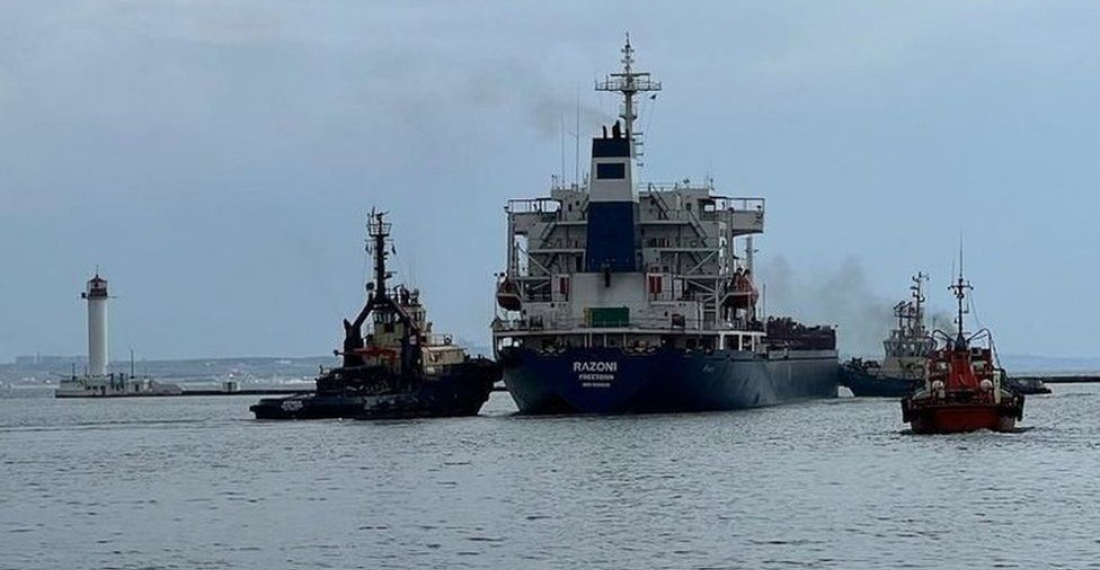Carrying some 26,000 tonnes of grain, the Sierra Leone-flagged ship Razoni has become the first ship to leave a Ukrainian port since a deal was reached between Ukraine and Russia. The ship is bound for Lebanon.
The issue of Russia’s blockade of Ukraine’s Black Sea ports has become increasingly acute in recent weeks as the UN, responding to global shortages of grain, warned of a ‘looming hunger catastrophe.’
The 22nd July deal, brokered by the UN and Turkey, is intended to provide for the safe passage of Ukrainian produce to Istanbul’s Bosphorus strait. Under the terms of the deal, Russia has agreed not to target Ukrainian ports while ships are in transit; meanwhile Ukraine has agreed that its naval vessels will guide the cargo ships through mined waters.
Ukraine’s infrastructure minister, Oleksandr Kubrakov, said: ‘Ukraine, together with our partners, has taken another step today in preventing world hunger’, stressing that they had done ‘everything’ to lift the blockade and provide the battered economy with a $1 billion lifeline.
The Kremlin also hailed the Razoni’s departure as ‘very positive’.
Within 24 hours of its signing, however, Russia’s commitment to the deal was thrown under serious doubt as it launched two missiles on the port of Odesa. Tensions remain high as the world waits to see if Russia will indeed provide Ukrainian grain safe passage into Turkish waters.
According to UN data, Russia and Ukraine combined produce nearly a third of global wheat supplies, with Ukraine alone providing 16% of the world’s corn and 42% of sunflower oil. Upon the signing of the agreement, wheat prices fell by up to 5.9% according to the Wall Street Journal.






